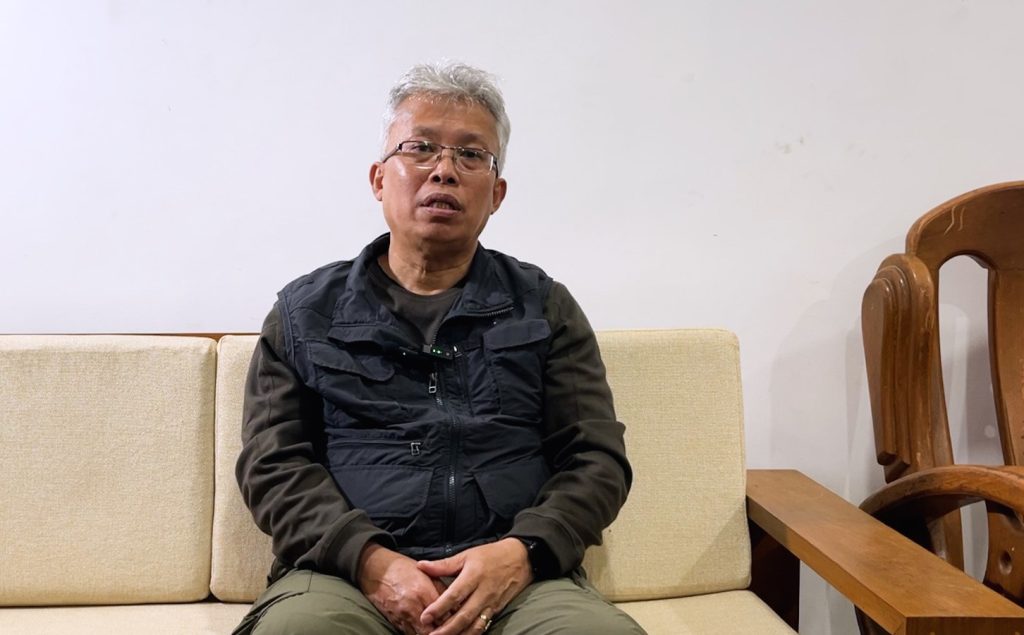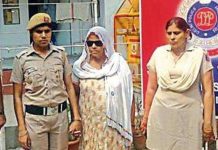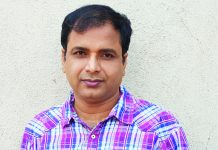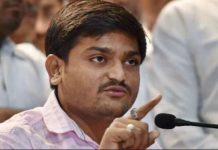
As the electoral frenzy grips Manipur, the political arena is ablaze with campaign fervor. With over 11 months of relentless violence casting a shadow, this election emerges as a pivotal juncture to reshape Manipur’s destiny, ushering in a new era of hope and transformation.
Among the multitude vying for change stands Dr. Angomcha Bimol Akoijam, an Associate Professor at the esteemed Jawaharlal Nehru University in Delhi. He steps into the electoral fray as an Indian National Congress candidate, bolstered by the backing of the INDIA bloc. In an interview with Tehelka, Dr. Bimol unveiled his intricate blueprint, envisioning a reinvigorated Manipur under his stewardship.
The electoral battlegrounds for the Inner Manipur seat are set for April 19, with the Outer Manipur Parliamentary constituency slated for April 26. Dr. Bimol finds himself in spirited competition, facing off against formidable opponents such as Thounaojam Basantakumar of the BJP, Maheshwar Thounaojam representing the Republican Party of India (Athawale), and three other independent contenders – RK Somendro (Kaiku), Moirangthem Tomtomsana Nongshaba, and Haorungbam Sarat, all vying for the Inner Manipur seat.
Q: With numerous candidates competing for the sole inner Manipur Lok Sabha seat, the public perceives that nearly all candidates are capable. In light of this, why should the public elect Dr. Angomcha Bimol Akoijam?
A: The public should delve into the roles and responsibilities of a Member of Parliament, gaining a comprehensive understanding of what an MP is capable of and what falls outside their purview. Afterward, the public should thoroughly examine candidates from various parties to assess their suitability for the position. The public needs to scrutinize whether a candidate can fulfill their promises and determine if they possess the capability to address the needs and desires of the electorate.
Q: As an educator at Jawaharlal Nehru University, renowned for its academic excellence, and having conducted extensive research, do you believe your scholarly expertise can significantly influence political decision-making?
A: Whether serving as a Member of a Legislative Assembly or a Member of Parliament, a lawmaker undertakes two primary functions, akin to the legs supporting a stride. The first function pertains to lawmaking, where legislative actions are tailored to address societal needs, from maintaining law and order to rectifying tax evasion or enhancing public healthcare accessibility. The second function involves oversight, a critical aspect ensuring the effective functioning of the executive and judicial branches. This oversight spans across various departments and policies, contributing to streamlined governance.
In political frameworks like the Westminister or presidential systems, the legislative body’s role is pivotal, particularly in scrutinizing budgets and policies proposed by the ruling government. This scrutiny ensures the relevance and efficacy of proposed measures in addressing societal challenges. Drawing from my background in social sciences, encompassing studies of society, economics, and beyond, I find a seamless integration of scholarly knowledge into political endeavors. This knowledge not only enriches public service but also provides a strategic advantage in navigating complex policy landscapes.
Nevertheless, it’s important to note that individuals specializing in physical sciences or other fields are not inherently unable to grasp the intricacies of social sciences and political systems. The knowledge and insights derived from social sciences are accessible and comprehensible to anyone who delves into them with an open mind and willingness to learn. The interdisciplinary nature of academic inquiry allows for a diverse range of perspectives and expertise to contribute meaningfully to understanding complex societal issues.
In my case, having devoted considerable time and effort to studying and researching issues specific to Manipur, along with my experience in guiding and supervising students in social sciences, has equipped me with a nuanced understanding and a practical advantage. This background not only enriches my ability to engage with diverse perspectives but also enhances my capacity to navigate the intricacies of political leadership effectively.
Q: Throughout numerous interviews, you’ve consistently emphasized your top priority of ensuring the safe return of displaced individuals to their homes. Could you elaborate on your additional priorities and outline your long-term vision for Manipur?
A: My utmost priority regarding the return of displaced individuals to their homes is centered on resolving the crisis they face. Facilitating the return of Meiteis to Churachandpur and Kukis to Imphal represents a significant step towards restoring normalcy. This effort is aimed at addressing the scars of past conflicts, reducing animosity, and fostering reconciliation. The act of returning home signifies a return to a sense of normalcy and aims to alleviate the strained relationships between the Meitei and Kuki communities. It’s not merely about individuals physically returning home; rather, it encompasses a broad spectrum of issues and challenges that need to be addressed comprehensively.
In terms of our long-term strategy, I have a comprehensive plan ready that I will unveil before the election. My message is that we mustn’t view this election in isolation; it’s an opportunity to delve into Manipur’s past, present, and future trajectory. As the 19th state of India, Manipur’s position within the country is intertwined with complex issues like insurgency, foreign relations, and Inner Line permits. These are all part of the broader political question: What is Manipur’s role in India? My primary goal is to address these intricacies and ensure a holistic approach to Manipur’s development.
I’ll steer clear of rhetoric and delve into the tangible aspects. In the context of globalization’s impact, I’ll outline how Manipur can effectively navigate these changes. What sets me apart from other candidates is my unique blend of experience and resources. For instance, I’ve educated students from diverse regions like Kashmir to Kanyakumari, and Rajasthan to Assam, and have established connections with senior faculty members across various universities.
Should I ascend to the role of Member of Parliament, my capabilities would extend beyond mere representation; they would embody a proactive engagement in legislative processes, addressing national imperatives, and shaping nuanced foreign policy agendas. This role demands a comprehensive approach that transcends regional concerns to encompass a holistic understanding of India’s evolving dynamics and its place in the global arena.
Having been a resident of Delhi for over three decades, I’ve keenly observed instances where Manipur’s narrative has been misrepresented or overshadowed. It’s incumbent upon us to chart a new trajectory, one that not only rectifies past missteps but also paves a robust path forward. By leveraging my network, experiences, and insights, I am poised to spearhead initiatives that reverse Manipur’s sense of isolation, fostering an era of inclusive growth and meaningful engagement within the national and international spheres.
Q: You’ve mentioned, “Send me to Parliament, and I will showcase what a Member of Parliament can achieve.” Could you elaborate on the roles an MP can undertake both within and outside the parliamentary setting?
A: There’s a common question: what impact can a single person truly have in Parliament? I firmly believe that one dedicated individual can indeed make a significant difference. Consider this scenario: if a hundred MPs remain silent and inactive, what’s the purpose of their presence? It’s disheartening to note that some MPs have entire terms without uttering a word in Parliament.
The essence of being an effective MP lies in the ability to serve and represent one’s constituency diligently. In my case, I am focused on the Inner Manipur Parliamentary Constituency, which comprises 32 assembly segments. While I won’t divulge my detailed plans at this juncture to prevent imitation, it’s crucial to note that being an MP encompasses much more than just delivering speeches in Parliament.
Internally, within my party, differences in opinions may arise. However, as an MP, I am committed to fostering unity and shaping the collective stance of the party on various issues. I firmly believe in the power of dialogue and consensus-building.
Furthermore, being an MP allows me to influence public opinion and correct any misconceptions regarding events or communities. For instance, in a recent interview with Karan Thapar, I had the opportunity to change negative perceptions about the Meitei community, leading to a positive shift in mindset.
In addition to parliamentary engagements, I am dedicated to actively working in my constituency for its betterment. While some initiatives can be undertaken without holding an MP position, the impact of full-time dedication to public service cannot be understated.
My vision as an MP is clear, and I am confident that my dedication and work ethic will surprise many. I aim to set a precedent for effective political leadership, inspiring others to elect leaders based on their deeds and contributions to society. Ultimately, I believe that demonstrating my capabilities will have a ripple effect, encouraging people to choose leaders who prioritize good governance and impactful actions.
Q: You described yourself as a modest teacher, yet we’ve seen politicians rely on muscle and money to sway votes. How do you intend to run your campaign without resorting to these unethical tactics?
A: In the past, not every politician resorted to distributing money in exchange for votes. However, their financial influence was undeniable. Unfortunately, our culture has normalized the practice of offering money for votes, contributing to our current situation. When I say I’m a modest teacher, it’s because I’m just one among thousands of faculty members in various universities across India. Like many others, I have monthly expenses such as EMIs and groceries that are essential for running my household. Contesting an election in the face of widespread money power worth crores is indeed a daunting task.
We also have a prevailing belief that large sums of money are required in rural areas during elections, while urban areas supposedly require less financial investment. I view this as a manifestation of the elitist mindset prevalent in places like Imphal. For instance, during the last assembly election in Manipur, the Keishamthong Assembly Constituency in Imphal saw substantial financial expenditures well before the actual election period. Despite this, some individuals continued to attribute electoral spending issues solely to rural areas.
It’s imperative to delve deeper into why such practices occur more prominently in urban areas, especially considering the concentration of educated individuals in these regions. Understanding these dynamics is essential for addressing and rectifying the root causes of electoral financial influence.
Despite these realities, there remains a lack of political consciousness among the public. However, it’s crucial for leaders to guide the public in the right direction. Unfortunately, many political figures exploit the vulnerabilities of the public, using them to their advantage to secure electoral victories. True leadership in politics requires a commitment to ethical practices and a genuine desire to serve the people, not manipulate them for personal gain.
Becoming a political leader involves more than just contesting elections; it requires proactive engagement and advocacy for principles such as free and fair elections without resorting to the distribution of money or other unethical tactics. It’s disheartening that some political leaders shift blame onto the people rather than taking responsibility and initiating meaningful changes within the system.
Q: What steps can be taken to find a solution and restore co-existence between the two communities affected by prolonged violence? How can we work towards fostering peace and communal harmony in the region?
A: We must recognize the contradiction between words and actions. Many people oppose divide-and-rule tactics and polarization, yet we witness a growing sense of division between communities, notably between the Meitei and Kuki communities. It’s crucial to assess our behavior: are we fostering separation or striving for reconciliation?
In Kuki areas, leaders have been quick to vilify Meiteis as monsters, while in the valley, there are voices denigrating Kukis in similar terms. This perpetuates the very divide-and-rule tactics that we condemn. Instead of bridging gaps, they sharpen divisions. One party blames the other, and vice versa, leading to a cycle of blame rather than constructive dialogue.
During my speech at Jantar Mantar in New Delhi, I emphasized the need to differentiate between condemning the elites and their divisive politics, rather than condemning entire communities. The ordinary people are often misled by elites who propagate false narratives, such as the idea that Meiteis aim to seize their lands. These narratives are not just spoken; they are written in newspapers and echoed by parliamentarians, further fueling misunderstandings and tensions.
Q: How would you articulate your appeal to the people of Manipur regarding the upcoming Lok Sabha election?
A: As I’ve emphasized numerous times, back in 2001, the public rallied to protect Manipur’s image. However, today, that image lies shattered, akin to a mirror’s frame remaining intact while the glass inside is irreparably broken. This state of affairs is unprecedented in Manipur’s history and is something our generation has not witnessed before. To rebuild and redefine Manipur, the transformation must begin with this election, creating a ripple effect that resonates throughout our society.
I implore the public to cast their votes based on the issues at hand. We must all be vigilant and prepared, considering the hardships we’ve endured. It’s imperative that this election is conducted with integrity, free from the influence of money and muscle power. Failing to uphold these principles will only hasten Manipur’s descent into further turmoil.












